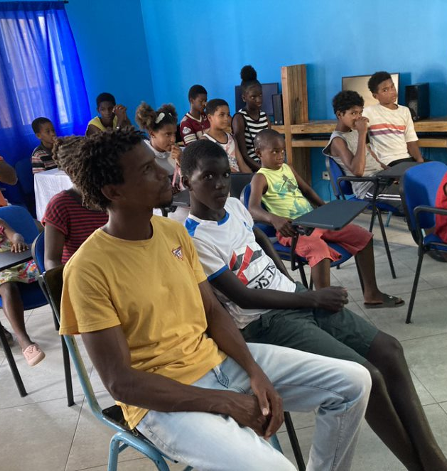Promoting Awareness and Advocacy of the Human Security Approach in Overcoming the COVID-19 Pandemic in Vulnerable Communities in Cabo Verde
Duration: October 2021– December 2025
Budget: US$US$ 400,000 (UNTFHS: $300,000; Pooled Funding: $100,000)
Implementing Agencies: UNODC, UN-Habitat
As a Small Island Developing State with an economy heavily reliant on tourism-related trade, imports and services, Cabo Verde has been deeply affected by the multidimensional consequences of COVID-19 and the exacerbating impacts of climate change and natural disasters, especially drought. This situation is further compounded by rapid urbanization that has led to a proliferation of informal settlements located in the peripheries of major urban centers and often in areas of poor accessibility and high risk and exposure.
The key objectives of the programme are to (i) build effective participatory local strategies in three of the most vulnerable urban communities of Cabo Verde, integrating human security to cope with and overcome the effects of the COVID-19 pandemic and other risks; and (ii) incorporate the human security approach into the local development plans of the three municipalities through community-led processes with a view toward upstreaming lessons into the national sustainable development plan.
KEY MATERIALS
Programme Summary
Participatory Local Strategies
Guide to Including the Human Security Approach in Local Development Plans and Other Sectoral Plans
Site Specific Assessment Report
Block by Block Methodology Report
Interest Story “Promoting Human Security in Cabo Verde”
Newsletter April – June 2022 (in Portuguese)
Using the Human Security Framework to Build Urban Resilience in an Innovative Way
It is the first time that the human security approach is implemented in Cabo Verde through the innovative Block-by-Block (BbB) methodology, which uses gaming as a participatory tool to engage vulnerable groups.
Based on the human security framework, the BbB methodology will help build a site-specific assessment in the three target communities. Coupled with community workshops, this assessment will guide the users to measure the quality of public spaces, identify crime hotspots, and gather other socioeconomic data. This will lead to the elaboration of a human security planning tool and participatory local strategies to comprehensively address local needs and challenges in the three communities.
Furthermore, the programme will build strong and lasting partnerships across sectors and support key actors in the development of the long-term legal and policy strategies to address urban issues within the pilot communities and ensure a safe and resilient future for the people of Cabo Verde.


